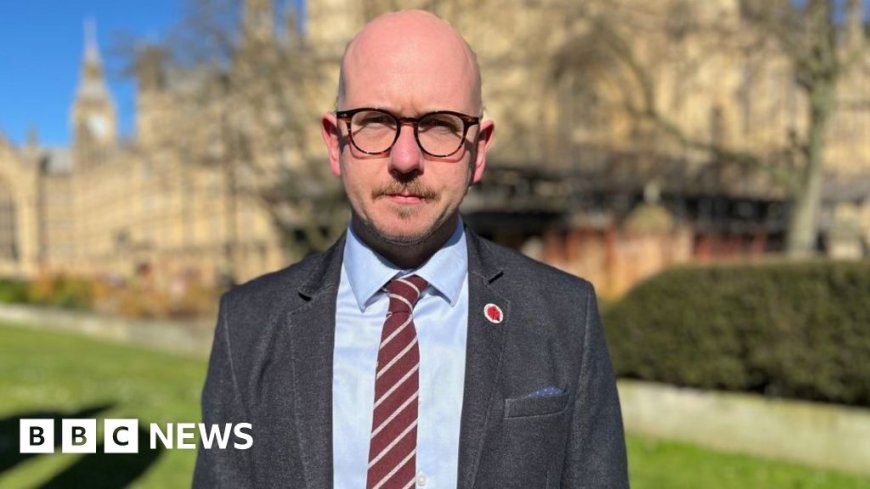Scottish Labour MPs Rebel Against Controversial Welfare Reforms
More than a quarter of Scottish Labour MPs have joined a rebellion against the UK government's welfare reforms. The MPs aim to block changes to the benefits system that they believe could harm disabled people and push individuals into poverty.

More than a quarter of Scottish Labour MPs have joined a rebellion against UK government's controversial welfare reforms. Ten of the party's 37 parliamentarians, including the chair of the Scottish affairs committee, have signed an amendment that would potentially allow them to block controversial changes to the benefits system. They are part of a group of more than 100 Labour MPs rebelling against Sir Keir Starmer's government. The prime minister told reporters the welfare system was \"unsustainable\" and said he intended to \"press ahead\" with reforms.
The government's Universal Credit and Personal Independence Payment Bill aims to save £5bn a year by cutting disability and sickness-related benefits. It includes proposals to make it harder for disabled people with less severe conditions to claim personal independence payment (PIP).
The bill has been heavily criticised by some Labour MPs, while the Scottish government warned it would be \"devastating\" for disabled people. More than 120 Labour MPs have signed an amendment that would give them an opportunity to vote on a proposal to reject the welfare reform bill in its entirety. The amendment said the reforms are expected to push people into relative poverty and expressed concerns about a lack of consultation and an inadequate impact assessment. The Scottish signatories include the chair of the Scottish affairs committee, Glasgow West MP Patricia Ferguson, and Brian Leishman, who has been outspoken critic of the government over benefits reform, cuts to winter fuel payments and the closure of the Grangemouth oil refinery in his Alloa and Grangemouth constituency. Scottish Labour MPs Elaine Stewart (Ayr, Carrick and Cumnock), Tracy Gilbert (Edinburgh North and Leith), Scott Arthur (Edinburgh South West), Euan Stainbank (Falkirk), Lillian Jones (Kilmarnock and Loudoun), Richard Baker (Glenrothes and Mid Fife), Kirsten Sullivan (Bathgate and Linlithgow) and Maureen Burke (Glasgow North East) have also joined the rebellion.
Leishman told BBC Scotland News the \"horrific\" welfare proposals \" are against everything that the party should stand for\". He added: \"What we need to do is build a caring a compassionate society and of course people that can work should work, that's natural. However, to think that disabled people and people that just cannot work should work, that is a ridiculously cruel notion.\" In a statement, Gilbert said there was a \"real risk that disabled people and children would be left worse off\" as a result of the bill. Burke said she understood the need to fix the UK's \"broken social security system which has seen an unsustainable rise in claimants\". She added: \"However, I cannot in good conscious vote for this bill which I believe will push people further into hardship.\" Scottish Labour leader Anas Sarwar said previously that the UK government was right to reform the welfare system but said any changes had to be \"fair\".
The UK government has warned that spending on health and disability benefits is forecast to reach £70bn a year by 2030. According to the Labour administration's own impact assessment, its reforms could push an extra 250,000 people, including 50,000 children, into relative poverty. Ministers say that analysis does not consider the government's plans to spend £1bn on helping the long-term sick and disabled back into work, or its efforts to reduce poverty. The vote on the bill is scheduled to take place next Tuesday. If it passes, the government is aiming to introduce the welfare reforms by November 2026. No-one will lose out on benefits payments until that happens. PIP is being phased out in Scotland and replaced by the devolved Adult Disability Payment. However, any cut to spending on PIP by the Treasury would have a knock-on effect on the Scottish government's budget.
Cabinet Office Minister Pat McFadden said ministers were \"happy to talk\" to MPs with concerns, but defended the bill as \"a really important package of benefit reform\". He told BBC Breakfast that the number of people on long-term sickness and disability benefits was set to double in the coming years. \"That is not something the government thinks it is right to sit back and be relaxed about,\" McFadden added. The government has a working majority of 165 in the Commons, meaning that 83 Labour MPs would need to oppose the bill to force a parliamentary defeat. SNP Westminster leader Stephen Flynn called on Labour ministers to withdraw the bill. He said: \"This isn't about reforming the welfare system, this isn't about getting people back into work, this is simply about taking money away from the most vulnerable, disabled people in society. \"On a point of principle we cannot, and will not, support this. And I'm just very glad that Labour MPs appear to be seeing common sense in this regard.\"
According to the source: BBC.
What's Your Reaction?
 Like
0
Like
0
 Dislike
0
Dislike
0
 Love
0
Love
0
 Funny
0
Funny
0
 Angry
0
Angry
0
 Sad
0
Sad
0
 Wow
0
Wow
0






















































































































































